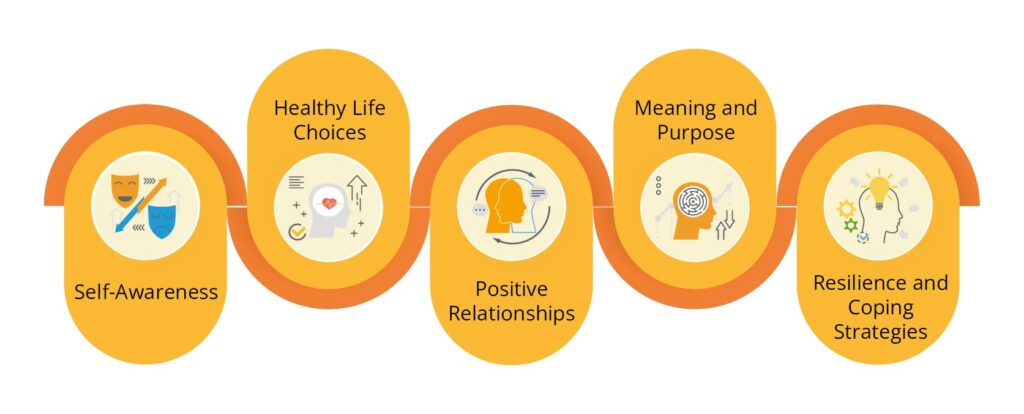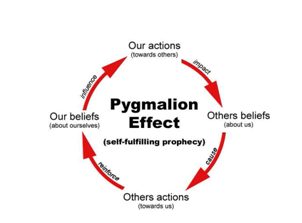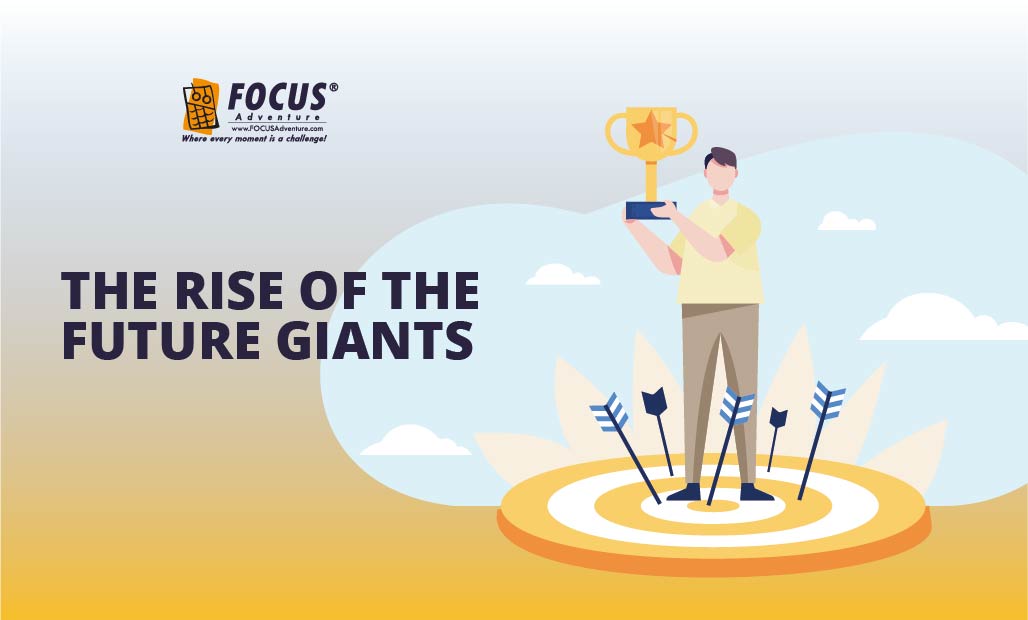Why Choose FOCUS?
By Joesph Fernandez
“No theory or plan or government policy will make a business a success; that can only be done by people. The most important mission for a manager is to develop healthy relationships to create a family like feeling within the corporation.
Those companies that are most successful are those that have created a shared sense of fate amongst the employees.” – Akio Morita, Sony Co-Founder
Okay, a hard-working manager like you comes across this statement.
Having personally gone through years of office intricacies, one would find it difficult to believe that one man can claim such an audacity. But how could you disagree?
This man build a juggernaut of an empire which still rolls with the Benjamin’s until today.
It is possible you say, Mr. Morita an industry icon, said it himself!
Hold on a minute; remember that higher up that constantly gets under your skin? How about the guy who is directly a competition in the other department?
Reality checks in. There are simply too many variables involve when you speak of personnel relationships in the office, and a “family like feeling”? Come on, it’s outrageous!
An incumbent rain on your parade.
Also recently, an article was posted on the internet indicating that people care less about others. Citing real situations on the self-directed mentality on everyday life.
Yet what’s up with a guy with a golden track record, respected by business leaders, priding on the importance of people and relationships?
Couldn’t success be attained with systems and principles alone? Isn’t it viable to multiply a company’s asset minus the personnel variable?
All these questions have been lingering ubiquitously in the corporate world, and we could assume only a handful know the real answers.
It’s not like you can whip a magic wand and whala! The office becomes a much more conducive working environment, with highly efficient employees and results.
Much of this issue is still a subject of debate and discussion; and it will never end.
If you go on reading more about economic magnates and brand tycoons however, you would realize that in their own approach, they concur with Mr. Morita.
Since the human factor is almost impossible to disregard at least in the foreseeable future, it does make sense to deal with it, doesn’t it?
Ordinarily, one wouldn’t really care much about personnel ecology. But as a manager, aside from it being your responsibility, you somehow have that gut feel of dryness inside the office.
You provide seminars, training, & incentives, still the empirical data shows that your office isn’t significantly growing; both in output and in human interaction.
Then how? What now?
It seems that we have more questions than answers so far.
Wait! Don’t stone me yet!
Now that you feel compelled to address workplace nuance, let me help in leading you in the right direction (or at least the alternative direction).
Admittedly, creating or even attempting to create a cohesive workforce is no doubt easier said than done; a tall order.
Not to mention the very tight and fast paced routines offices subscribe to every single hour, every single day of the year.
When employees cram for something as small as a tea break, who would take a minute, to plan, initiate, or design “something” specifically engineered to uplift relationships in the workplace?
Don’t fret! For this, I would borrow a very famous line from a movie ages ago: “If there’s something strange in the company hood, who you gonna call..?”
FOCUS Adventure
According to Connors (1995), “When people come together for any purpose for a period of time, a psychological boundary develops around them and separates them from other people. This boundary has a unifying force, which makes those within it act to some degree as a unit, a whole. When people form a relationship or join a group, they gradually become more dependent on each other and must move, interact and change together because their outcomes become connected.”
In layman’s terms, imagine spending 8 hours a day, 5 to 6 days a week with the same group of people – these individuals plainly become your life. In fact, you spend more time with them than your family or friends.
Somehow, in way or another, some kind of connection or a bond for that matter would be formed; it’s inevitable.
You have an effect on them & vise versa; directly affecting your life, and the company’s life.
And most often than not, you cannot choose the ones you work with. (As if you have a choice right?)
Essentially, all of you become a team or more commonly known as an organization.
FOCUS Adventure specializes in organizational growth & change; initiating dramatic and evolutionary transformation. The process is intended to improve micro and macro personnel interaction or relationships within a company.
But of course, you can simply view the website and read the plain text.
Fine, the company has a pristine track record and for more than a decade, has been the leader in adventure based corporate training programs. They have passed the acid test with flying colors.
I guess the million dollar question is how and why?
Why choose FOCUS Adventure? And how do they do it?
Again, you can browse the basic details online. This time though, allow me to give you a slightly deeper, broader and more substantial, yet simple perspective on what FOCUS Adventure is all about.
Learning By Doing
You heard of the saying, “You can’t teach an old dog new tricks”?
First, I’m confident that you are not that old; second, I’m sure you are not a dog.
Though very rampant nowadays in references, studies, researches and even the internet, this school of thought has existed for thousand of years; the concept of Experiential Learning.
Companies from various industries do their own versions of the method.
Because believe or not, adults have particular needs to learn new things (Knowles 1978; McCaffery 1986; Zemke and Zemke 1981).
Like children, they need to explore and engage with the outside world for new inputs. Unlike their young-aged counterpart on the other hand, if an object, activity or person is not or would not play a relevant in real life, forget it.
Also, if something does not relate to past, present or would be future experiences, the learning curve slopes down.
Full participation and involvement are required for adults to acquire new knowledge. The process should be conducted in such a way that they can discuss with others and the activity facilitator (Connors & Caple, 2005).
That is why FOCUS Adventure’s repertoire is experience, adventure & activity based programs, and adheres to the premise of the Experiential Learning approach.
Experiencing
Learning by doing right? Doing what?
Do is defined by dictionary.com as to act, perform, to accomplish.
Any form of activity that requires physical or mental engagement action turns into some form of accomplishment, an outcome; either an answer to a mathematical equation, or beating the track record for a running competition.
For corporate team building courses however, the tale of the tape is a tad different.
FOCUS Adventure has a set menu so to speak, of activities an event organizer or manager might envision.
On the naked eye, these experiences can be taken at face value. But what lies underneath is more instrumental to an organization’s development.
Programs abide by a set of codes that are critical for success.
At this point, the architect and one of the cornerstones of FOCUS Adventure, its Project Managers, together with the organizing team and Facilitators, carefully and meticulously draft a blueprint of activities with an objective.
They work behind the scenes to make something that focuses on goals such as improving internal communication, promoting leadership skills, self discovery, reiterating company values, so on and so forth.
In other words, a program tailored-fit for a certain organization.
The organizers get a first hand knowledge of what would be the ingredients of this program, and can be confident it’s just not another phony event.
In psychology, there is a model known as SLE (Structured Learning Experience). The philosophy behind it is to customize an activity based on a group’s needs. Most of the time, this principle is applied on group counseling, leadership training, group dynamics, and behavior modification.
Sounds easy.
But what must be advocated to ensure its quality?
According to Ortigas (1997), there are guidelines in designing a well-organized, spot-proof program.
In her book, Human Resource Development and Management: The Philippine Experience, she elaborated on the suggested 3 components of a program. These are:
Input Data
The bulk of information in this part includes Clientele Profile, SKA (Skills, Knowledge & Attitudes), Specific Learning Issue, Theory Input, Experience, Style and Personality of Facilitators allocated Program file & Logistics.
Technical Framework
This aspect discusses the parts of a program from Orientation, Introduction and Activity proper, Process, Synthesis and Closing remarks, then finally Evaluation.
Sometimes, for experimentation and testing purposes, the facilitation team could conduct a dry-run.
Other books would similarly show the same pattern with a 5 to 7-section framework.
Implementation
The title speaks for itself. Contingency is also considered when doing a program. The facilitators foresee actual difficulties that may arise in a program; may it be on equipment, the location, the participant’s situation, etc.
FOCUS Adventure defines this as SA or Situational Awareness.
Alternatives or Plan B’s is prepared as well.
Okay, so experiential learning and engaging in a team building program make more sense now.
Then again, if one can find these concepts in an encyclopedias or books in the library, you now raise the multi-million dollar question:
Ultimately, why FOCUS Adventure?
See, if they can do it, chances are someone else out there can do it as well.
That’s why FOCUS Adventure prides on its front runners that make them stand above the rest of the competition, the Facilitators.
Facilitating
Taken from their company website it states, “The competitive edge of our experiential learning programs lies in our highly committed and energetic facilitators”.
True. But highly committed and energetic are broken records. There must be something up their sleeve that makes them really good at what they’re doing.
The answer is right under your nose.
FOCUS Adventure, using thorough screening, makes certain that their Facilitators are Facilitators, and are very good Facilitators.
Hold on, that sounds redundant; doesn’t seem to make any kind of sense.
Most often than not, a program’s success almost completely rest upon the shoulders of the facilitator, so it’s important to note his information.
So first, let’s try to provide an operational definition for the word.
According to MerriemWebster.com,
Facilitator means:
one that facilitates; especially: one that helps to bring about an outcome (as learning, productivity, or communication) by providing indirect or unobtrusive assistance, guidance, or supervision <the workshop’s facilitator kept discussion flowing smoothly>
So why not hire professors or a lecturer conduct your team building program instead? With the dissertations and the PhD’s. These people are well educated and respected in the academic community?
Why a facilitator to bring about learning, result or communication?
What do you think disparate them?
The difference lies in what they do. School gurus discusses concepts, explains theories, impart equations and logic.
Facilitators on the other do not teach nor lecture; instead, they facilitate a process.
In all human interactions, there are two major ingredients – content and process (Pfeiffer, 1973).
Sure, the program has objectives to meet. The content. The organizing team is adamant about the target being met.
No worries, the activities ahead have clear direction and intention. In spite of this, is there a guarantee that everyone would absorb the same message from the event? Could you possibly convince each and every participant to like one another?
Could a random person, say a facilitator, force an adult to subscribe to a philosophy he believes otherwise?
Based on what we talk about so far about adult learning, please assist me in offering an answer for this.
Once and for all, corporate team-building sessions do not and should not impose an ideology, a mentality to its clients. It cannot, and never will.
They can learn and explain the content in class, but do they understand?
The modern trends in learning nowadays suggest that learners must have a certain degree of ownership of the lesson learned. This school of thought is more applicable in adults wherein they must have a number of opportunities for active learner involvement (Jones & Pfeiffer, 1973).
That is why a Facilitator’s personal outlook, as much as his skills, is so crucial in engraving the elements of a program; especially in providing the must-have process within the group dynamics of the clients.
The program is the highway, the Facilitator presents the vehicle.
Little heavy to digest? Understandably so.
So how would you know if the facilitator did the job?
If you attended a program not feeling you just got out of philosophy class.
The process is what matters. The facilitation. It’s not the destination, it’s the journey. It’s not what’s waiting on the other side, It’s the climb; as what Miley Cyrus’ song would say.
The profound experience.
Facilitators help amplify the program’s message through the process; providing timely intervention, necessary reinforcement, promoting acceptance and sensitivity to differences, illuminating vague ideas, and lubricating language between individuals.
The process is the culmination of a team-building event; and compared to lectures and lessons, ithas a more lasting effect. A continuum.
In eventuality, that effect is what participants would take away.
It’s what would induce them to apply the learning and insights in the home, work and social world situations,
“Out there” or “back home”, life is a series of experiences; a more elaborate interaction with the world so to speak. Only when the above mentioned activities are processed can they provide learning and life become an experience of continuing growth” (Pfeiffer, 1973).
According to these studies, here is where the paradigm shift takes place; the culture and belief systems evolution within the organization.
By linking this processes to workplace realities, FOCUS Adventure programs foster change from the participants themselves; harnessing useful insights, worthwhile ideas, and overall scale sharing atmosphere in the office.
Ergo, the organizers achieve their objectives.
In the end, a manager can view corporate team building programs basically as an alternative to in-house training sessions.
Like Eastern, in contrast to Western medicine if you may; a prescribed diet for an environment with high blood sugar, corroding the capillaries of personnel welfare.
Or simply something to give the office a breath of fresh air, a new outlook in the bigger scheme of life.
One day, Transformers & Iron Men will walk the surface of the earth.
But for as long as human beings still exists, people and relationships would always one be the foundations of a successful company or a brand.
Allow me to quote a sports commentator for the last line.
For experiential learning, corporate team-building, adventure-based programs:
“Nobody does it better” than FOCUS Adventure.
The single most important ingredient in the formula of success is learning how to get along with people – Theodore Roosevelt
















